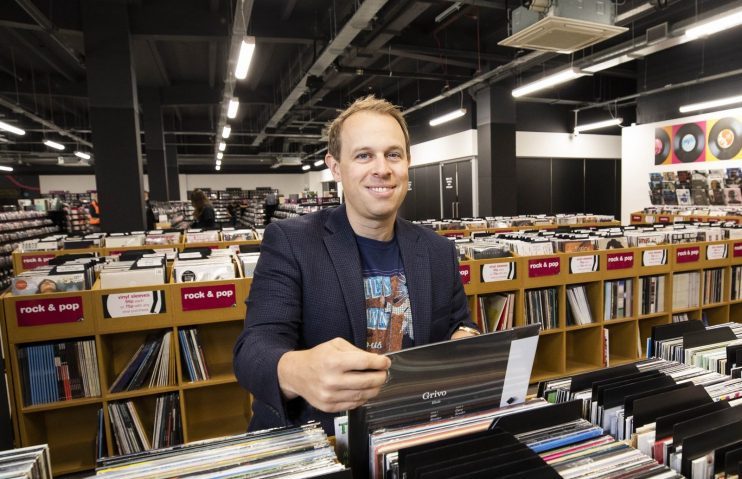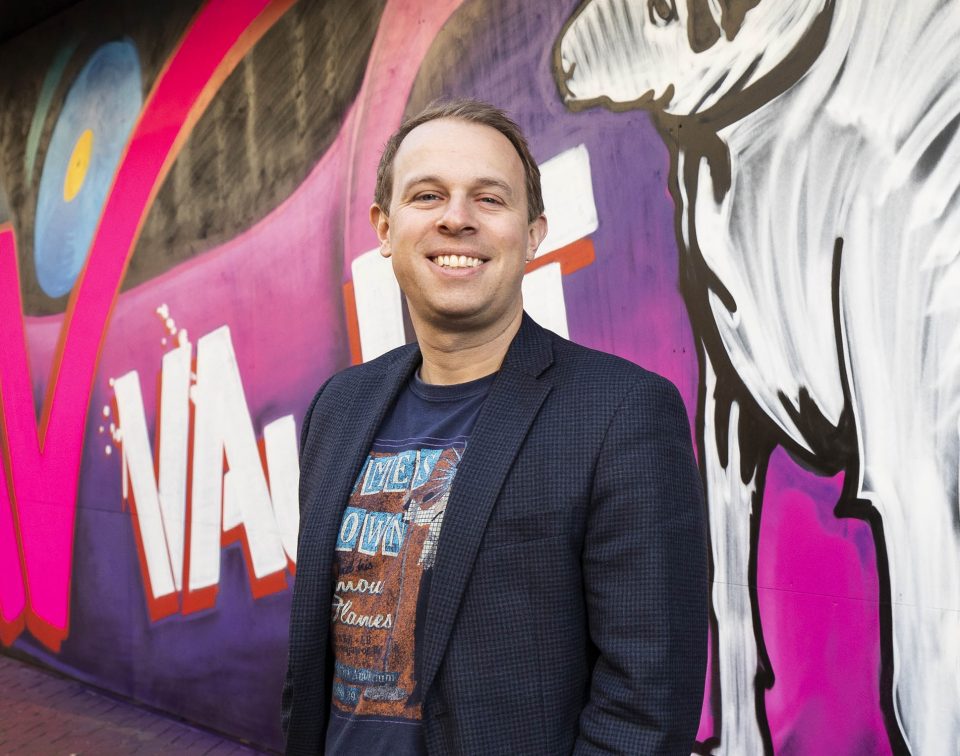Exclusive: HMV’s new owner on where he wants to take his High Street stores

Music and entertainment retailer HMV confirmed last week plans to open 10 new stores, including a flagship London site.
Following its decline into administration two years ago its Oxford Street store – along with many others – were closed.
However, new owner Doug Putman, a Canadian music retail executive, bought the struggling business and believes there is a place for it upon the British High Street once again.
In his first major interview this year, Putman sits down with City A.M. to explain why he has full confidence in the future of the High Street and where he plans to take his stores.
You are planning to open ten new branches this year. What a vote of confidence in the High Street. Why this decision?
The British high street isn’t suddenly going away. It’s something that’s very unique to the UK and we’ve seen from our own footfall figures since opening up from lockdown that there’s a real desire from the public to support physical retail. We saw queues outside all our stores for our Exclusives Day this week when we sold classic vinyl records you could only buy at HMV, celebrating our 100th birthday.
There’s something about going into a store and discovering new music that you just don’t get online – that adrenaline rush of finding something you’ve just chanced upon, that hasn’t been provided by an algorithm.
More than ever, the onus is on retailers to create a real sense of theatre and offer something that online can’t. For HMV, that means bringing back our famous in-store appearances and signings now we’re allowed to do so, as well as offering what we’ve always had and can’t be recreated in a true sense in the virtual world: face to face conversations and recommendations from staff who are as passionate about the product they’re selling as the customer that’s buying.
Would you say that the threat from e-commerce has diminished?
It’s not that the threat has diminished per se but rather that retailers are re-evaluating how they can integrate e-commerce into their business. For HMV, it doesn’t have to be one or the other. No primarily physical retailer could say the pandemic was good for business, but it meant we really focused on improving our online offering and now we have both online and stores in a strong place.

DVD and music sales have gone down, it’s all streaming these days. How has HMV responded to that trend?
There’s no denying that CD and DVD sales have declined over time, but there’s still a big audience buying them that is loyal and they aren’t going to disappear overnight. What you’re getting now is fans who might listen to an album on Spotify or watch a film on Netflix, but then buy a special edition physical copy because they’re invested in the band, director or franchise.
People are also talking about the vinyl revival, which is something we’re really invested in.
People say ‘it’s all streaming these days’ but the huge popularity of vinyl is evidence that physical and digital music aren’t mutually exclusive. Vinyl sales at HMV continue to grow, and we’ve added thousands more pop culture lines. Fans aren’t just buying records or films, they’re buying into the whole experience of being a fan.
Where does HMV see opportunities for growth in the years to come?
We’re working to become more of a destination for the fans rather than a store that is purely driven by music and film. What that means is that if you’re a fan of BTS, for instance, you won’t just find their albums, you’ll find a large range of merchandise.
We mentioned the High Street earlier, what will those shopping streets look like in, let’s say, 5 to 10 years from now?
In honesty a lot of this depends on the actions of the Government. We hope they continue to help high street businesses and see that communities want shops on their high street, rather than seeing row after row of the same shop or properties left vacant. Of course the hope is that we’ll see the high street continue to evolve as a destination for customers, with experiences that really engage shoppers rather than simply offering the product in the traditional way.
Finally, Covid has disrupted practically any business or industry. How has the Coronavirus pandemic affected your business?
Fortunately, we entered the pandemic debt-free, so we were able to concentrate fully on addressing everything that came our way during lockdown and afterwards. It was difficult for everyone, but we experienced relatively small staff turnover. Our staff are so loyal and incredibly passionate about what they do that we were able to really hit the ground running, and we’re now in a position where we can open new stores this year. It really gave us the opportunity to come back with a bang and celebrate our 100th birthday in style.